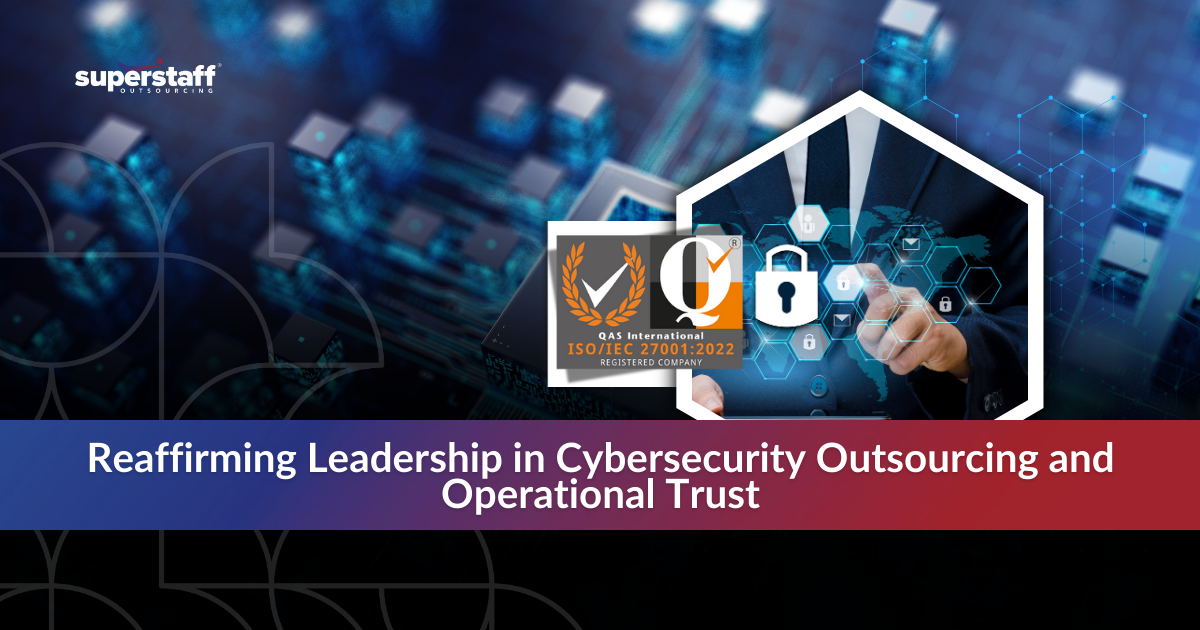
In today’s hyper-regulated business world, even small missteps can lead to costly fines, public scrutiny, or halted operations. From healthcare to logistics, companies face mounting legal obligations that shift almost as quickly as technology does. That’s where the role of a regulatory compliance specialist comes in.
These professionals don’t just help businesses stay within legal boundaries—they build the frameworks that keep operations running smoothly, audits passing cleanly, and reputations intact. For SMEs and midmarket companies, outsourcing regulatory functions to experienced offshore teams can provide the same level of protection and expertise as an in-house department—without the overhead.
Regulatory Compliance Specialists: The First Line of Defense

A regulatory compliance specialist is the person businesses turn to when they need assurance that every policy, process, and product meets the legal and ethical standards of their industry. This role involves deciphering dense regulatory texts and turning them into actionable business strategies. Whether working with a startup entering a regulated market or a mid-sized enterprise scaling globally, these professionals develop the systems that help teams operate legally and ethically.
Their work starts with monitoring the ever-shifting landscape of laws and regulations. From federal mandates to local rules, changes can happen weekly—and companies need someone to track those developments. A regulatory compliance specialist takes this a step further by integrating those requirements into day-to-day operations. That means drafting internal policies, standard operating procedures (SOPs), and compliance controls that aren’t just legally accurate but also easy for employees to follow.
These specialists often serve as a bridge between businesses and external watchdogs. They prepare documentation for audits, communicate with regulatory bodies, and ensure timely filings. And when third-party certifications are required—like HIPAA for healthcare providers or ISO standards in manufacturing—they often rely on a compliance automation platform to ensure every checkbox is marked efficiently. A skilled regulatory compliance specialist turns what could be a liability into a strength.
Preventing Problems Before They Arise
The most effective compliance strategies don’t kick in after something goes wrong—they prevent issues from surfacing in the first place. That’s another key function of the regulatory compliance specialist: risk anticipation and mitigation.
This begins with internal audits. Compliance professionals don’t wait for regulators to show up before they start checking documentation and processes. They regularly conduct internal assessments, flagging potential issues before they escalate. These internal reviews often reveal gaps in training, inconsistencies in reporting, or outdated procedures—all of which are corrected proactively.
But rules don’t matter if no one understands them. That’s why a large part of a regulatory compliance specialist’s job is educating employees across departments. From entry-level staff to department heads, everyone needs to know their role in ensuring compliance. A good compliance specialist designs training programs that are clear, relevant, and easy to apply. These aren’t one-time events either—refresher courses and updates are delivered whenever there are changes in laws or company policies.
When non-compliance does happen—as it inevitably will—the specialist investigates, identifies root causes, and recommends corrective actions. This could mean revising protocols, retraining staff, or updating documentation. A regulatory compliance specialist helps a business learn from missteps without falling into a cycle of repeated violations.
One Role, Many Industries
While the foundational duties of a compliance specialist are consistent across sectors, the actual regulations they deal with are wildly different. A professional supporting a healthcare provider faces an entirely different set of challenges compared to someone working in finance or logistics.
In the healthcare industry, regulatory compliance specialists are deeply familiar with standards like HIPAA, as well as Medicare and Medicaid billing compliance. Their work ensures that patient data remains confidential and billing processes are transparent and accurate. For pharmaceutical firms, they also navigate clinical trial regulations and FDA reporting requirements.
In the finance sector, compliance professionals are the gatekeepers of anti-money laundering (AML) protocols, Know Your Customer (KYC) standards, and consumer protection laws. A regulatory compliance specialist working in a financial institution must be meticulous with data handling, suspicious transaction reporting, and financial disclosures to ensure no red flags attract scrutiny from watchdog agencies.
In logistics, compliance means understanding and applying trade laws, environmental standards, and customs procedures. Whether a company is shipping across state lines or across continents, a regulatory compliance specialist ensures every movement is documented, permitted, and legal. They also track changes in import/export laws, taxes, and documentation to keep shipments—and profits—moving.
Every industry may have different laws, but the skills needed for a regulatory compliance specialist role remain anchored in analysis, communication, and execution. That said, these professionals must adapt quickly, develop deep sectoral knowledge, and stay updated with shifting policies that vary not just by industry, but also by country.
Why Outsourcing Compliance Makes Business Sense
Hiring in-house compliance specialists can be expensive and logistically complex. For many growing businesses, especially those expanding into new markets, it’s not always feasible to build a full regulatory department from scratch. That’s why outsourcing compliance functions has become a strategic option for SMEs and midmarket companies alike.
Offshore compliance teams provide access to trained professionals who are already versed in your industry’s regulatory frameworks. A regulatory compliance specialist working remotely from a global delivery center can offer the same quality of oversight and insight as an in-house hire—often with greater flexibility.
One of the greatest advantages of outsourcing is cost efficiency. Instead of investing in recruitment, onboarding, and training (not to mention salaries, benefits, and infrastructure), businesses can engage offshore teams on a flexible basis. This allows companies to scale compliance efforts up or down based on project needs, audit cycles, or regulatory changes.
Moreover, outsourced specialists often work as part of larger compliance teams that pool expertise. A single project may benefit from the knowledge of professionals trained in multiple jurisdictions, giving your business a competitive edge when expanding globally. These teams don’t just follow regulations—they stay ahead of them.
And for business leaders concerned about control or confidentiality, the right outsourcing partner will offer secure platforms, service level agreements, and transparency that mirror—or exceed—internal standards. In this model, outsourcing doesn’t mean giving something up. It means gaining something strategic.
SuperStaff’s Expertise in Regulatory Support
SuperStaff offers more than just back-office assistance. Our regulatory compliance teams are built to support growing businesses across critical industries like healthcare, finance, and logistics. Each regulatory compliance specialist on our team is trained in the unique legal frameworks relevant to their client’s sector and location.
We help companies develop internal compliance structures that are both functional and scalable. From policy creation to documentation management, we support your entire compliance journey. Need help preparing for an audit? We’ve got you covered. Looking to review employee training on a new regulation? Our remote teams can build and deploy it. Have a question about an international regulatory update? We have the resources to provide fast, accurate answers.
One of the advantages of partnering with SuperStaff is flexibility. Whether you need short-term assistance during an audit period or ongoing support for day-to-day compliance activities, our teams adapt to your business needs. Our approach is not one-size-fits-all—it’s tailored, collaborative, and always aligned with your goals.
We also understand that regulatory compliance is not just a legal issue—it’s a business enabler. By helping companies build and maintain strong compliance structures, we empower them to enter new markets confidently, improve operational reliability, and enhance brand trust. With SuperStaff, regulatory readiness becomes a source of strength—not stress.
Conclusion: Why Your Business Needs a Regulatory Compliance Specialist
A regulatory compliance specialist plays a vital role in protecting your business from legal and financial pitfalls. Whether it’s writing policies, conducting internal audits, or ensuring sector-specific compliance, their contributions are far-reaching. They don’t just interpret the rules—they operationalize them across teams, helping companies remain agile, trustworthy, and competitive in tightly regulated markets.
As industries grow more complex, so too do the responsibilities placed on these professionals. From finance to logistics, the demand for deep regulatory knowledge is rising—and so is the cost of getting it wrong. Outsourcing provides a smart, scalable solution. Businesses gain access to skilled specialists who understand not just the law, but how to implement it effectively across a distributed workforce.
SuperStaff is proud to be a trusted partner in this space. Our compliance professionals bring both expertise and adaptability to every client engagement, ensuring that your business doesn’t just meet expectations—it exceeds them. Explore how SuperStaff’s regulatory support solutions can help your company stay compliant, competitive, and confident in every market you serve. Contact us today.






